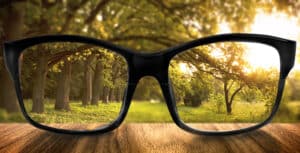
- Keep an eye on pollen reports. Your local weather channel will most likely give regular updates on the pollen counts for your area. When pollen counts are high, try and limit your outdoor activities as much as possible.
- Limit your exposure to wooded areas.
- When you do go outdoors, wear wraparound sunglasses to help shield your eyes from pollen, ragweed, etc.
- Close your doors and windows especially in the early morning hours when pollination tends to occur. Use air conditioning during the warmer months.
- Remove your contacts. Because the surface of contact lenses can attract airborne allergens, you should consider wearing eyeglasses during allergy season. You could also consider switching to daily disposable contact lenses that you can throw away after one use to avoid any possible build-up of debris and other allergens on the lenses.
- Use artificial tears or lubricating drops to relieve dry eyes or to flush out any irritants.

